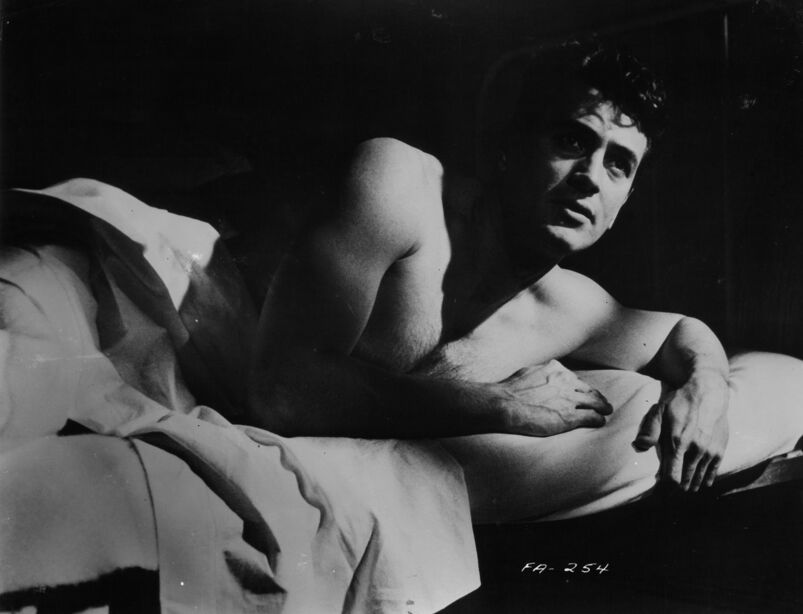
After premiering at Tribeca Festival, the documentary Rock Hudson: All That Heaven Allowed is now available on Max for home viewers to relive the hunky Hollywood star’s rise to fame, gay trysts, and groundbreaking AIDS announcement in 1985, making him the first major celebrity to disclose their HIV status.
Filmmaker and documentarian Stephen Kijak (whose other documentary subjects include The Backstreet Boys and Lynyrd Skynyrd) watched dozens of Hudson’s film roles, interviewed friends, colleagues, and former lovers, and meticulously examined archival photographs and other ephemera to piece together an all-encompassing examination of Hudson’s life.
Related:
WATCH: Rock Hudson’s former boyfriends & colleagues reflect on the life of the closeted movie star
Everyone knows Rock Hudson’s Hollywood story, but this new doc explores the life he was forced to keep a secret.
Born Roy Harold Scherer, Jr. in 1925, Hudson’s dream of stardom was a far cry from his rural upbringing in Winnetka, Illinois. After a stint in the Navy, he headed for Hollywood, where he met the notorious agent Henry Willson, known for shepherding young men into the spotlight (Tab Hunter was another client).
We caught up with Kijak to learn more about how the film came together and what he learned about Rock Hudson along the way.
QUEERTY: With so much information to draw from, where did you begin the creative process for the film?
KIJAK: It’s an archival process. I start with the estate collection — a lot of it was just absorbing visual material —home movies, photographs and snapshots, and all the studio stills and ephemera. So it’s just kind of digging through all that.
And then on the other side, it’s just reading all the books; these authors have done so much of the work for you, you know, and especially Mark Griffin, his book is so good and well researched, but it’s chronological, and you can’t do that in a feature. What is the story we’re trying to tell?
There’s no mystery once you hit the 80s. What I really wanted to do was to collect every piece of the archive we could, from the first announcements in newspapers and on television news about what would become the AIDS crisis. You can’t believe how contained and small it started out, and then finding some of those important voices like Larry Kramer and Randy Shilts [author of The Band Played On], who were there talking about it at the very beginning. News was breaking about this “mysterious cancer” in San Francisco, and meanwhile Rock is making jokes on Bea Arthur’s show. It was interesting to see how these two things ran in parallel and then collide.
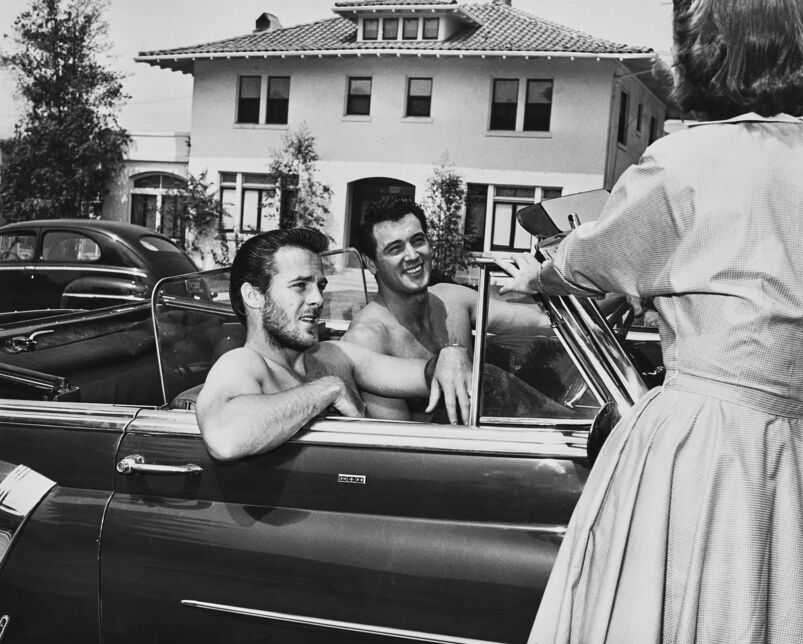
After digging through all that material, was there an “aha” moment that helped distill the film’s throughline?
The very last paragraph of Griffin’s book becomes our opening scene. It was an interview he did with Peter Kavoian, who, as a young actor, had done a play with Hudson. They were sitting by the pool in Hollywood, and Rock described himself as a diamond. It’s Peter’s voice we hear at the beginning of the movie, and It’s kind of silly, but I read it and thought it was beautiful. It’s camp. It’s revealing. It’s mysterious. And that’s our opening scene — it’s about a dream.
You’ve mentioned in the past how the era of Rock Hudson’s early films appealed to the 1950s “frustrated housewife,” when traditional marriages were the norm, and how his roles might appeal to those in loveless relationships. Do you see a parallel with closeted gay men?
Oh, completely. It’s like the diva complex. Why did we relate to Judy Garland — the evolution of those attachments to female stars, their dilemmas and problems, and how those would unfold in their private lives, but also on screen? And likewise, how we were romanced by these great actors.
I think the gay community knew way before anyone else; there were just these instinctual things that would draw you to him — Rock Hudson ripping his shirt off every five minutes in Scarlet Angel — it’s a terrible movie, but these potent images of virility and sexuality are just electrifying.
Related:
PHOTOS: 25 Rock Hudson pics that prove he was big in all the right places
Standing 6’4″, Rock Hudson was a whole lot of Hollywood. Here’s a look back at his life, both on and off screen.
And through it all, he had (not so) secret lovers. I’m curious about your conversation with Lee Garlington, who Hudson dated in the mid-60s.
He was warm and full of memories. It was a really important part of his life. His husband, Paul, is lovely, and I think they kind of nurture it — this memory and this chapter of Lee’s life because they know how important it is historically. You know, there’s a famous quote (I don’t know how accurate it is) that Rock only loved two people in his life: his mother and Lee Garlington.
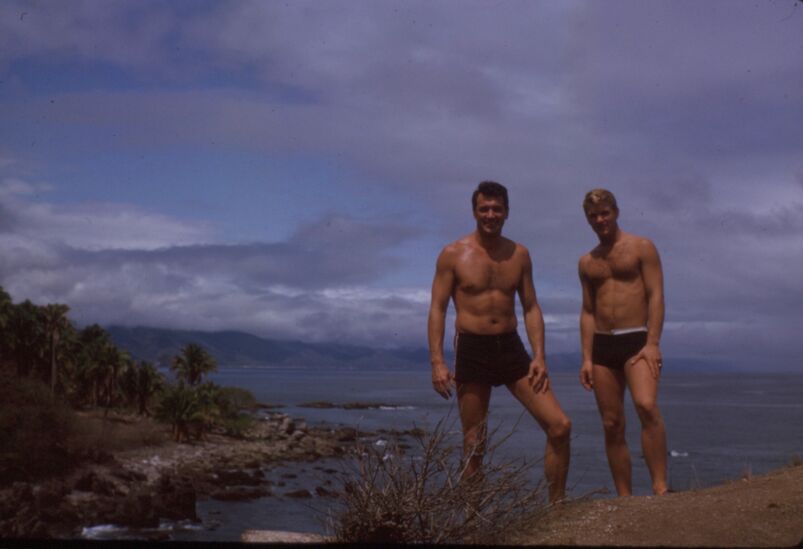
Was there anything that didn’t make the film’s final cut that was particularly hard to let go of?
There’s a sweet little scene where Rock went on vacation with Captain Lightfoot co-star Barbara Rush and script supervisor Betty Abbott. We have the home movies, just Rock with his two gal pals. He was like the big brother. Some Italian came over and said something rude to one of them, and he punched them out. It’s just like this classic gay guy with his best girlfriends kind of vibe. It’s just one of those breezy moments that makes me really nostalgic.
And then we interviewed two men who had been Rock’s neighbors in the Hollywood Hills, who are legends in their own right — there’s a great book they wrote about their lives together, Double Life. It was really just a story of generosity. Their house burned down, and they hadn’t really known Rock, but he got them on the phone (he was working in New York) and insisted they move into his house until they could rebuild. He forced them to move into his house and had his whole staff at their disposal. They remained friends until the end of his life.
Both stories give us a sense of who he was outside of Hollywood’s spotlight. It is curious, though, to look at his career shift, especially from the 1970s onward, when he shifted to TV.
There were really high “highs” in the filmography, but there are just so many more lows. Especially in Griffin’s book, you see over and over again how he pins his hopes on these projects, thinking that he’ll be taken seriously as an actor. He was only nominated [for an Oscar] for Giant. Granted, the Doris Day films were massive box-office hits. If anything, I think what he struggled with the most was his reputation as an actor. He tried to get serious and do Frankenheimer’s Seconds, this bizarre paranoid thriller, and people are like, “What the hell is this?” But we can look back and go, damn, this is brilliant.
McMillan and Wife, set in San Francisco, ran for seven seasons. Susan St. James played his younger hippy-ish wife solving crimes. It was a ludicrous show. The collars got a little wider; his mustache gets a little bigger. And yeah, a massive hit. Yet again, this easy, likable, lovable character. So that leads to what happened in the 80s. It’s not like he was some forgotten star, like, “Oh, remember Rock Hudson? He has AIDS.” He was in everybody’s living room.
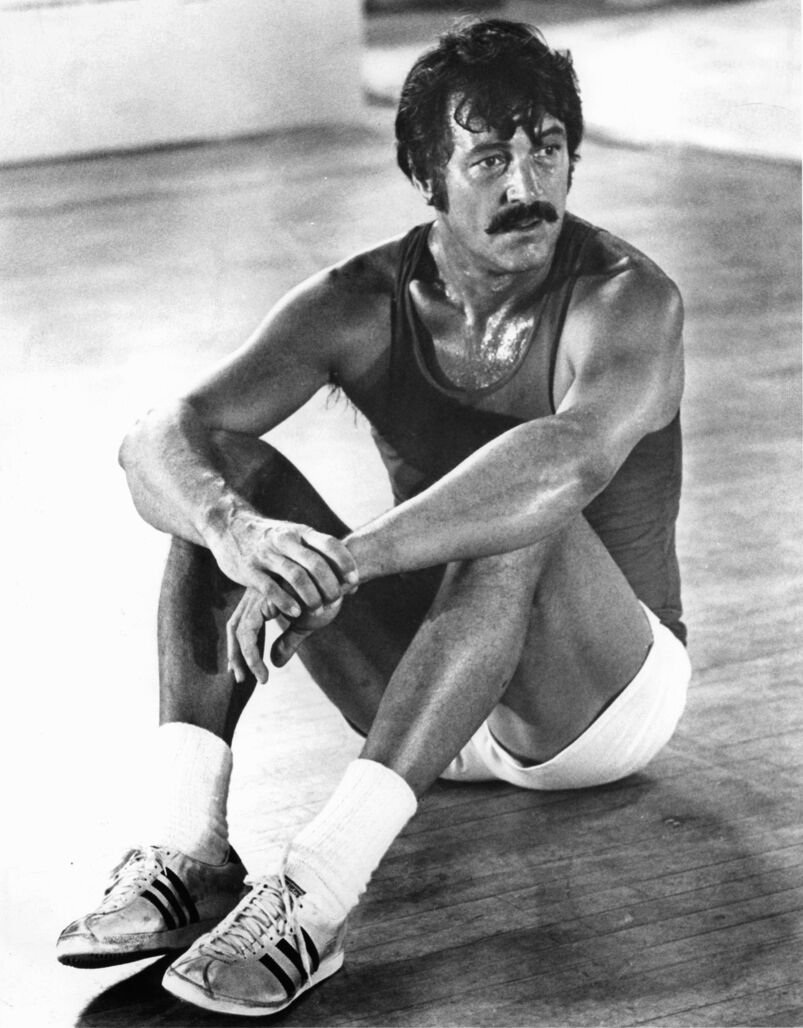
I wonder how much his agent Henry Willson had to do with that career trajectory or if Hudson, at the end of the day, was just an average actor.
That’s another big conversation. Rock’s biological father left when he was young. His mother remarried, and the guy was a jerk, and they didn’t get along, so he never had a strong father figure in his life. There was a press agent at Universal Studios who was kind of a mentor to him and other older men along the way. But Willson crosses the line — there were probably sexual undertones to that relationship.
But as far as his acting, Rock is best when paired with a really great director like Raoul Walsh, who cast him in Gun Fury [1953], which has this weird homoerotic subtext. And then George Stevens, who directed Giant [1956] — he needed these kinds of paternal director types in the classic kind of Hollywood mode. And then, in some other films, he’s just adrift. Maybe he was a great actor, and we’re not unpacking it in the right way. I think there’s some brilliance all along the way; he’s just best in a strong collaborative situation.
I’m not 100%sure when he left Henry Willson — mid-60s maybe — but there comes a point where he’s just too big, and he’s not afraid of him anymore. There’s a rumor that Willson once said, “If you leave me, I’ll hire someone to throw acid in your face.” He was a nasty piece of work. And I think he pulled strings that could help shut up a journalist and connected to ex-mob heavies that would rough people up if they needed shutting up.
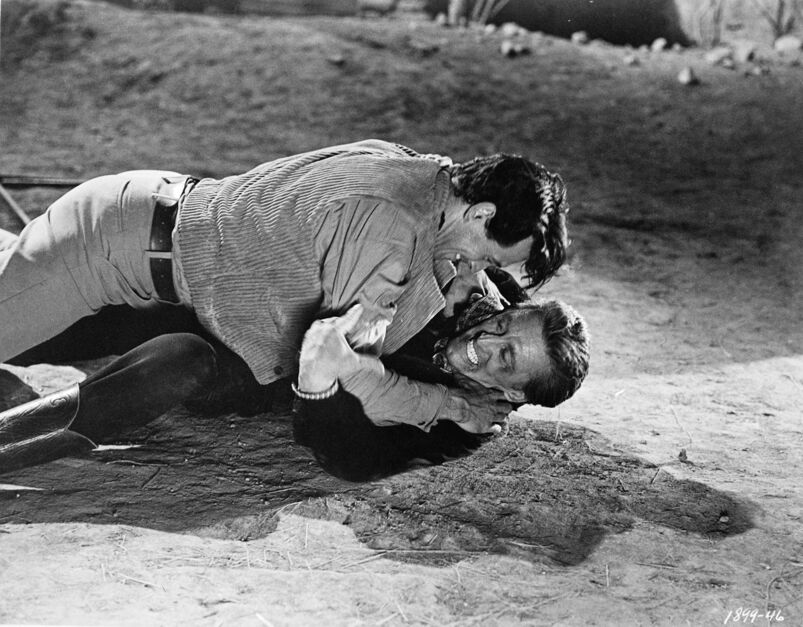
Rock Hudson was of an era that’s impossible to duplicate. Is there anyone in Hollywood today that compares?
He was such a product of the time and the DNA that created “Rock Hudson.” And that movie machine — the dream factory — isn’t what it is today. People ask, “Who would you cast as Rock Hudson?” and I’m at a loss. We don’t have an equivalent because the world has changed so much.
It strikes me as so poignant that he carried the weight of this open secret for so many years. That story could have broken so many times. Was there an unwritten rule in Hollywood to keep his sexuality under the radar?
That’s what it seems like. There was such goodwill around him. People really liked the guy—
—and he was a moneymaker.
That’s the thing — the press was making money on him, too. That goes away, and they lose hundreds of covers and feature stories. It all kind of fed itself. And it’s not just him, they were doing it with everybody. For decades, every [actor’s] persona in Hollywood was a complete fabrication. When the tabloids started blowing up, then they started coming for them. Look at what they did with Elizabeth Taylor. Every ounce she gained became a headline, and it starts to become nasty.
But somehow, Rock Hudson was able to eclipse it. It’s kind of a miracle, to be honest with you. It’s amazing to me that he skated by because, my God, he was having fun under the surface.
Interview has been edited for length and clarity.
This article includes links that may result in a small affiliate share for purchased products, which helps support independent LGBTQ+ media.

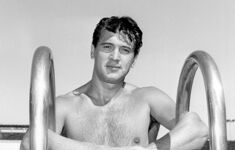
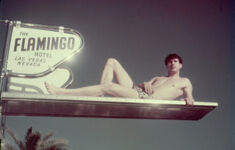


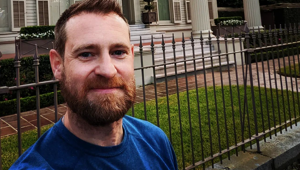
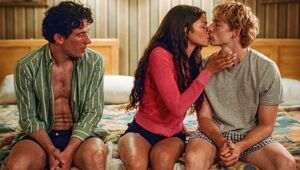



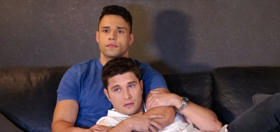







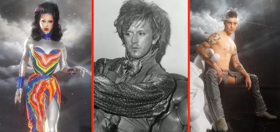
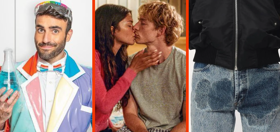

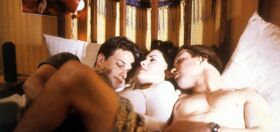
JPP
It should be noted that contrary to this article Winnetka is not rural but a very affluent suburb of Chicago just north of the city proper and surrounded by other suburbs none of which are rural.
banditboy
That might be how it is now, but in the 1920s and 1930s when Rock was growing up there, it probably was a more rural area.
Fahd
In the book the documentary is based on, the author Mark Griffin, describes the apartment and house the young Roy Scherer lived in as a young child, and he gives the street names in Winnetka. His parents were from blue collar families whose ancestors were mid 19th century immigrants who had worked as farmers in the area. The depression hit them hard. Anyway, Winnetka then doesn´t sound anything like the Winnetka of today.
Fahd
Kudos to Kijak! The documentary is well worth watching, and how valuable to have the interviews with surviving lovers, acquaintances, and co-workers.
There were perhaps too many clips from Hudson’s movies/shows where someone is talking to him about his “being different”, “concealing something”, “not fitting in”, etc….sort of the Rock Hudson/Doris Day room-of-mirrors thing where Rock is a gay man playing a straight man who is trying to pretend he’s a gay man. These outtakes, albeit clever and earning a smile, seemed almost like filler after awhile, and the show is plenty long anyway, so many worthwhile pics, clips, interviews, etc.
I thought the presentation was very fair and put the viewer in the historical context in which Hudson grew up and achieved stardom – makes one less likely to judge. Also, I loved that the film retold the story of Nancy Reagan’s horrible betrayal and also highlighted the huge difference in the attention/funding to Aids that Hudson’s announcing his condition and then his passing made.
Finally, a thousand blessings on Elizabeth Taylor and her memory.